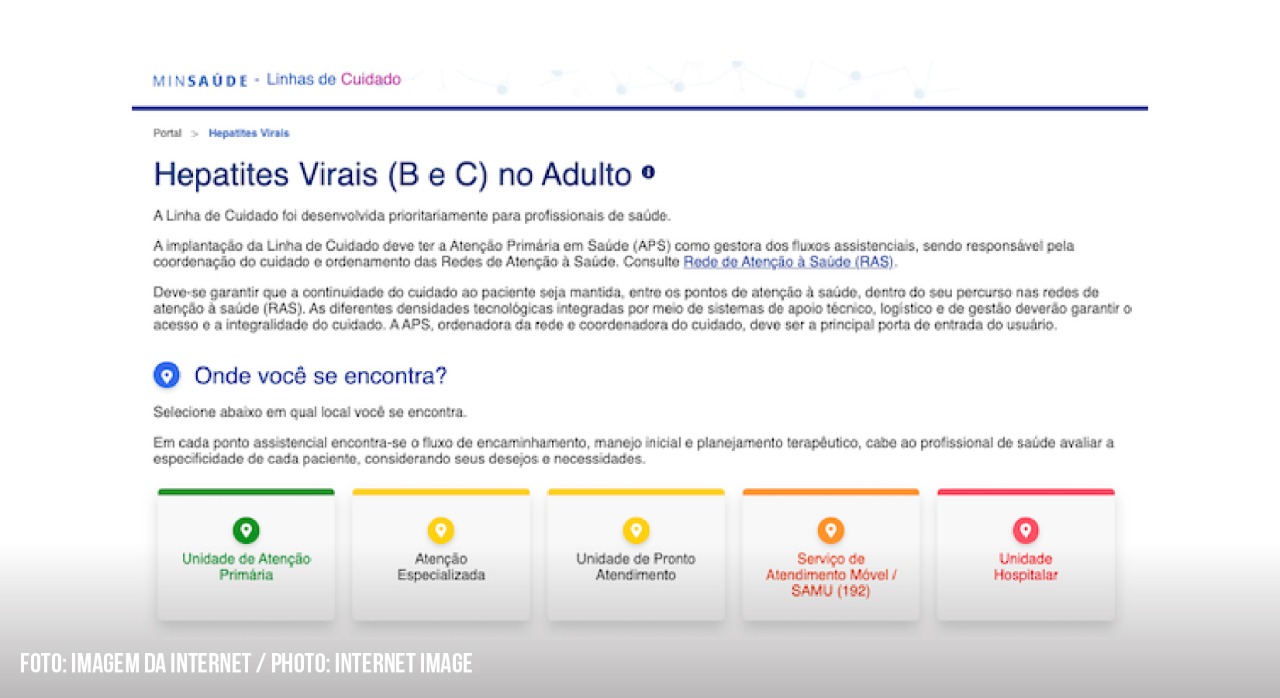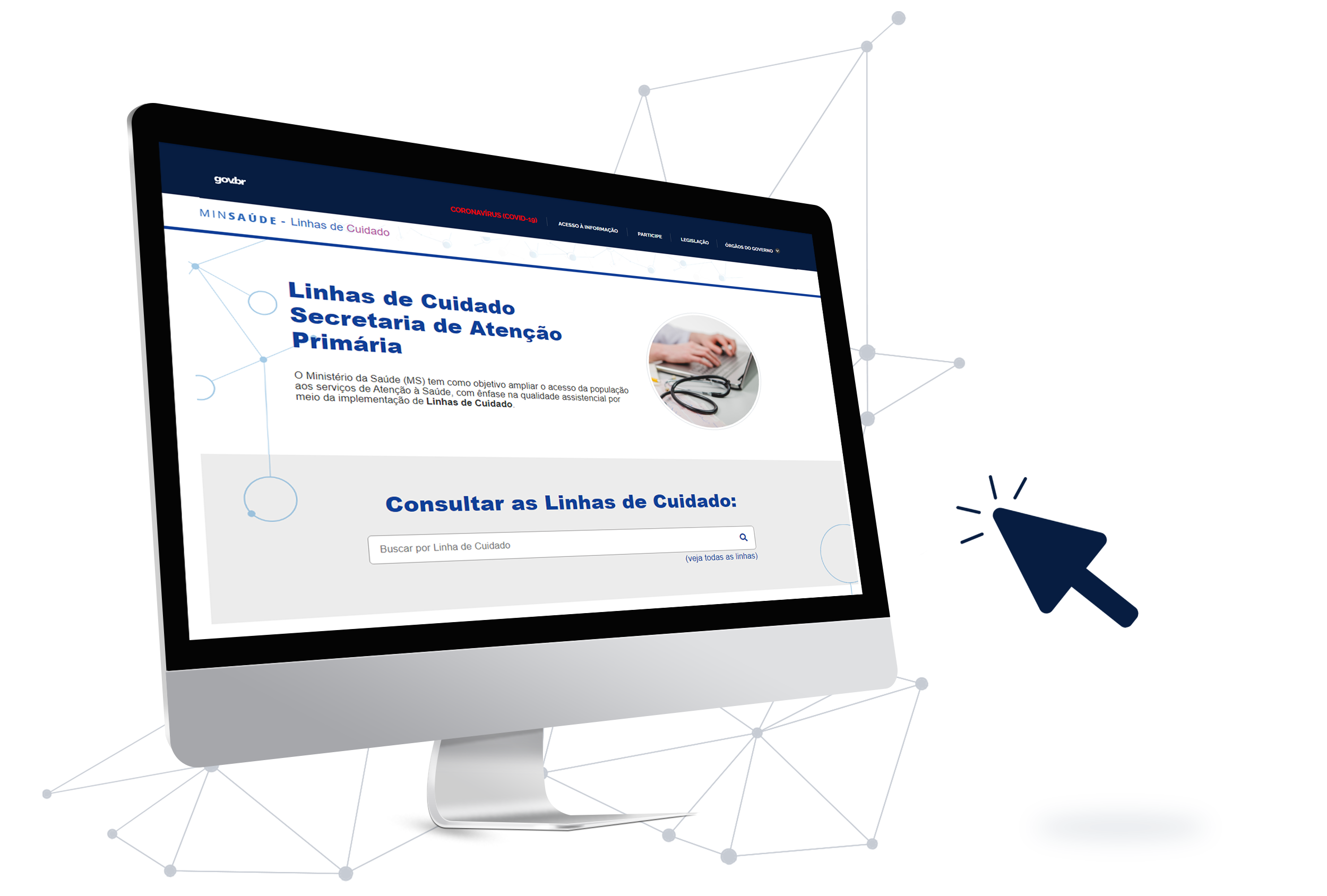
Health and technology: the Care Lines project brings interactive knowledge to the SUS
The interactive platform will provide subsidies for the organization of services in the SUS
08/01/2022
Online materials guide health professionals, managers and citizens regarding the identification of health problems and where to seek care
According to the Ministry of Health, 1.5 million Brazilians live with the hepatitis B or C virus. Most people dont know the diagnosis or dont find out early. To contribute to the fight against this public health problem, the office launched, in December 2021, a service that aims to help citizens, managers and health professionals in the fight against hepatitis B and C. Named Adult Viral Hepatitis Care Line, the online platform offers assistance for the organization and standardization of services offered at all levels of care in the Unified Health System (SUS). It also helps the user to have more autonomy, with access to information about diseases, what promotion, prevention, diagnosis, treatment and rehabilitation activities are available in the public network and where to start the treatment. The platform can be accessed during the consultation by computer, smartphone or tablet.
The tool also details the critical points to be observed by managers, both in Primary and Specialized Care, so that the entire process is done in an integrated manner and with the common strategic objective of helping to reduce mortality attributed to hepatitis in more than 75%, by 2030, a target established by the World Health Organization (WHO). The construction was based on data collection from protocols, guidelines and technical standards previously established by the Ministry of Health and by the state and municipal health secretariats. If the municipality or region already has a Care Line for hepatitis B and C, the recommendation is to assess the possibility of adjustments to the Care Line proposed in this new platform.
Currently, it is estimated that more than 450 thousand people are actively infected with the hepatitis C virus in Brazil, and about 1.1 million people have hepatitis B and are possibly unaware of their conditions. Globally, viral hepatitis represents a serious public health problem. The impact of these infections causes more than 1.1 million deaths annually worldwide, whether from acute infection, liver cancer or cirrhosis associated with hepatitis. The mortality rate from hepatitis C, for example, can be compared to that of HIV and tuberculosis. Most of the time they are silent infections, which have no symptoms. The most common in Brazil are A, B and C, known as viral hepatitis. There is also hepatitis D, more frequent in the North region, and hepatitis E, less present in the country. SUS provides rapid tests for hepatitis B and C, vaccines against hepatitis A and B, viral load tests, confirmatory tests and safe and effective drugs, which allow the control of hepatitis B and cure more than 95% of cases of hepatitis C .
HIV/AIDS Care Line
 In October, the Ministry of Health launched the Care Line focused on HIV/AIDS in adults, aiming to expand anc qualify access to diagnosis, treatment and ongoing care, focused on adult users. On the platform, managers have access to guidelines to organize and reorganize the care network, while health professionals (not only in Primary Care, but also in specialized, emergency and hospital care) have access to information about therapeutic management and planning, to better assess the specificity of each patient, considering their wishes and needs. The project also helps patients seeking want information about HIV/AIDS, about its prevention and understand which path they should take within the SUS.
In October, the Ministry of Health launched the Care Line focused on HIV/AIDS in adults, aiming to expand anc qualify access to diagnosis, treatment and ongoing care, focused on adult users. On the platform, managers have access to guidelines to organize and reorganize the care network, while health professionals (not only in Primary Care, but also in specialized, emergency and hospital care) have access to information about therapeutic management and planning, to better assess the specificity of each patient, considering their wishes and needs. The project also helps patients seeking want information about HIV/AIDS, about its prevention and understand which path they should take within the SUS.
In all, a series of 24 thematic materials will be made available for the guidance of health professionals, managers and population, produced in partnership with the Institute of Health Technology Assessment (IATS). They were designed based on the most up-to-date scientific evidence existing in Brazil and in the world, to guide managers, professionals and users on techniques related to the organization of care in the health system and describing the most appropriate path that the patient should take in the care network. In addition to viral hepatitis, so far, Lines of Care have been launched on the following topics: CVA in adults; Type 2, Diabetes Mellitus, Adult Systemic Arterial Hypertension; Autism spectrum disorder in children; HIV/Aids in adults, Obesity in adults and smoking. Other topics planned for launch are breast and cervical cancer, depression, anxiety and asthma, among others.
The Lines of Care strengthen the Health Care Network by promoting the integration of actions and services and the formation of horizontal relationships from the health unit in Primary Care to specialized services. The tool facilitates, guides and encourages the use of inputs, technologies and other health resources in daily work, in the development and implementation of prevention, screening, diagnosis, treatment and monitoring of people. All lines also have a specific page for users and health managers.










